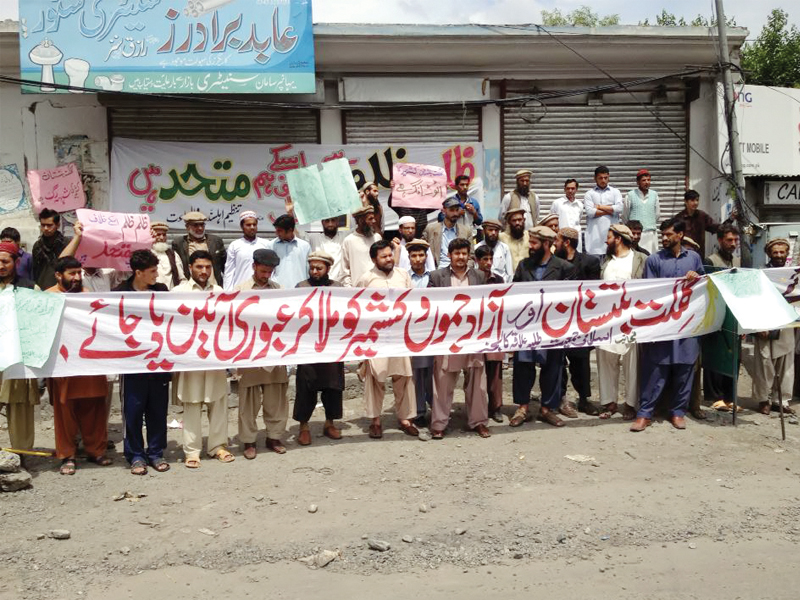
A token strike was called by parties including the Ahle Sunnat Waljamat (ASWJ) and Jamaat-e-Islami (JI) to register their reservations against the order promulgated by the Pakistan Peoples Party (PPP) government in 2009.
Under the order, elections were held in Gilgit-Baltistan (G-B) for the first time in history and a chief minister and governor were elected and the PPP became the ruling party. G-B was made a de facto province but not under the Constitution.
Protesters carried banners and dispersed peacefully later. However, in a precautionary move all educational institutions, markets, cellular services and the Karakoram Highway remained closed on the government’s orders.
A heavy contingent of police, rangers and Gilgit-Baltistan Scouts patrolled the roads.
“The decision to suspend cellular services had been taken as a precaution to avoid any untoward incident,” said Sajjadul Haq, a spokesperson for the Chief Secretariat. In the past, bitter incidents have occurred between rival groups because of the misuse of mobile phones, he added.
ASWJ G-B chief Qazi Nisar Ahmed condemned the mobile phone restriction, arguing it was a non-violent ‘token strike’ against the self-governance order.
Ahmed said G-B was historically part of Kashmir and should be amalgamated with Azad Kashmir under an interim constitution.
“The existing governance system is unacceptable to us as it has deprived us of our rights,” Ahmad told journalists in Gilgit.
He accused Chief Minister Mehdi Shah for being biased in favour of a particular sect. “Families of the Sunnis killed were paid Rs100,000 each while others killed in similar instances were paid Rs2 million each,” he alleged.
G-B JI chief Abdul Sami said the strike was meant to protest the 2009 Order and draw the attention of whoever forms the new government following the elections on May 11.
Published in The Express Tribune, May 7th, 2013.

















COMMENTS
Comments are moderated and generally will be posted if they are on-topic and not abusive.
For more information, please see our Comments FAQ